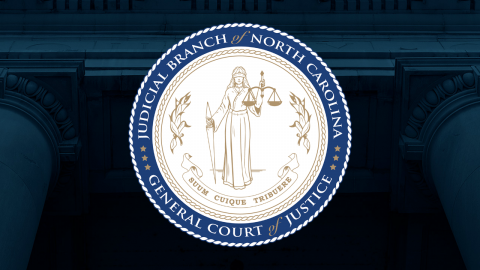Dare Board Paves the Way for Recovery Court

New program prioritizes drug treatment over prison
With its March 18 approval of a Memorandum of Agreement (MOA) between Dare County, 1st District Senior Resident Superior Court Judge Jerry Tillett and the North Carolina Administrative Office of the Courts (NCAOC), the Dare Commissioners took their final step toward starting a Recovery Court program in Dare County.
The program, set to begin in about a month according to Dare County Manager Bobby Outten, provides the county with what supporters say is an important weapon in the battle against the nation’s opioid epidemic. Opting for treatment over incarceration, it offers a court-ordered and supervised rehabilitation program with reduced or suspended jail sentences to help defendants with substance addiction break the cycles of drug dependence, crime and jail.
Dr. Sue Lynn Ledford, Public Health Director in Wake County, which has a successful Recovery Court Program, told the Sentinel that the key to such programs is the recognition of substance use disorders as a “chronic disease.” While noting that many law enforcement and judicial systems continue to view substance use as “a behavioral issue,” she added that recognizing it as a disease that can be treated effectively is “very important.”
The March 18 MOA commits Dare County to provide funding for the program and authorizes Tillett to hire a Recovery Court Coordinator, who will report to him but technically be an employee of the state of North Carolina. Typically the programs are managed by a team that includes judges, prosecutors, defense attorneys, counselors, social workers and drug rehabilitation professionals.
For the last four months of Fiscal Year 2019, ending June 30, the MOA projects costs of $18,667 for the coordinator’s salary and $27,331 in total expenses. For Fiscal Year 2020, running from July 1, 2019 to June 30, 2020, it projects costs of $57,400 for the coordinator’s salary and $83,499 in total expenses.
Noting that funds already budgeted cover the expenses through June 2020, Outten told the commissioners that, “If you approve this tonight, you’re basically saying that in the next budget we are going to make sure we accommodate this expense as well.”
Presenting the MOA to the Dare Board at its March 18 meeting, Outten explained that the county had previously set aside budgeted funds “to fight the opioid problem.” Following meetings between Dare County’s Saving Lives Task Force, co-chaired by Dare Commissioners Vice Chairman Wally Overman and Dare Department of Health and Human Services Health Education and Outreach Director Roxana Ballinger, and judicial representatives, Outten said, “they decided to move forward…and create a Recovery Court.”
The Recovery Court program was first mentioned by Dare Commissioners Chairman Bob Woodard at his State of the County address in January, when he characterized it as “another step in the right direction to help those that have [addiction] issues.”
While the nation’s first “drug court” debuted in Miami-Dade County in 1989, a successful program in North Carolina cited by Dare County officials started in Wake County in 1996.
To be eligible, a participant must agree to plead guilty to misdemeanor or felony charges and agree to be placed on probation. The participant then enters the program in place of serving a jail sentence and must comply with responsibilities that include a commitment to completing 12 months of Intensive Outpatient Substance Use Disorder Treatment.
Responding to the news that Dare County was set to launch its own Recovery Court program, Ledford, the Wake County Public Health Director, said: “I hope it really goes well. And you’re in our thoughts and our prayers.



















